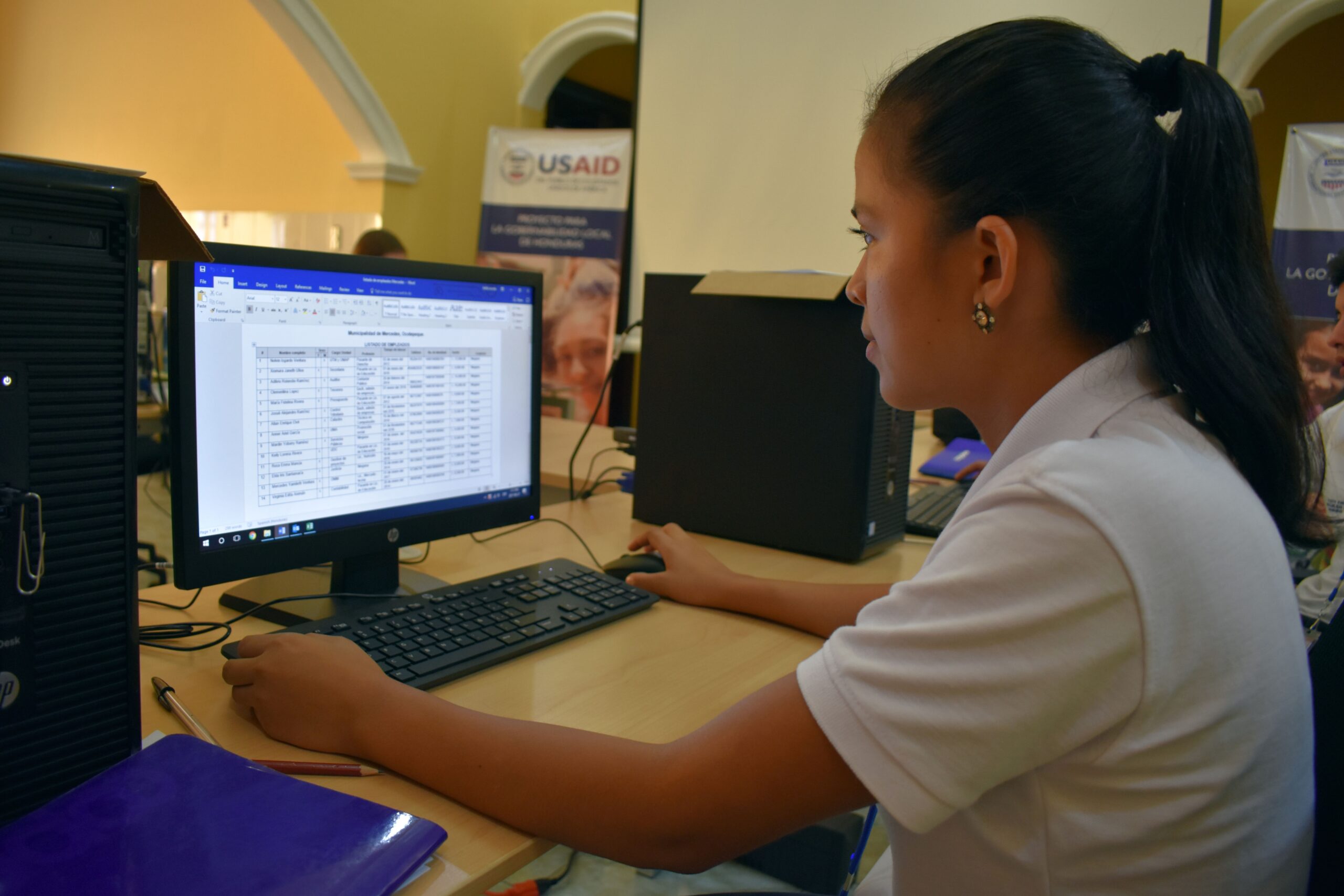Helping Vulnerable Young Hondurans to Gain Job Skills, Self-Confidence and Hope for the Future
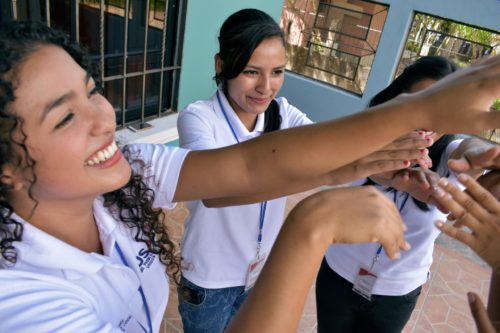
Through its “Internships for Inclusion” program under the Honduras Local Government Activity (HLG), USAID is strengthening the competencies of Honduran youth by engaging them in educational, inspirational, and purposeful experiences. Through this program, urban youth are building their own capacity to improve public service delivery in their own communities.
SHAPING OPPORTUNITIES FOR SELF-RELIANCE
Youth is a critical stage of development for anyone. During this phase, young people acquire experiences and skills that contribute to their personal and professional growth, affecting their present and future as well as their role in society. According to the National Youth Policy Organization and Honduras National Institute of Statistics, there are approximately 3.3 million Hondurans between the ages of 12 and 30, accounting for 37.5% of the country’s total population. Of these, 27.5% —or roughly 900,000 young Hondurans—neither attend school nor work, according to a study by the International Labor Organization. Unemployment and a lack of training expose young people to social and psychological risks that can negatively and permanently impact their lives and impede Honduras’s path to self-sustaining development. The HLG is helping equip the next generation of Hondurans with the skills they need to help build a peaceful and prosperous Honduras.
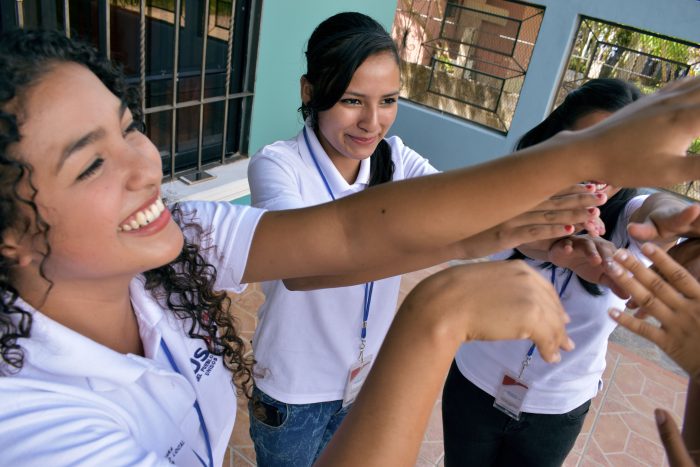
THE USAID HONDURAS LOCAL GOVERNANCE ACTIVITY
The USAID Honduras Local Governance Activity is a five-year program that seeks to improve the provision of public services and, therefore, the living standards of citizens of 89 target municipalities in six departments in Western Honduras. To ensure youth are engaged in achieving these objectives, USAID designed “Internships for Inclusion,” an internship program that aims to strengthen basic behavioral and functional competencies of selected young people living in Copán, Santa Bárbara, Ocotepeque, Intibucá, Lempira, and La Paz.
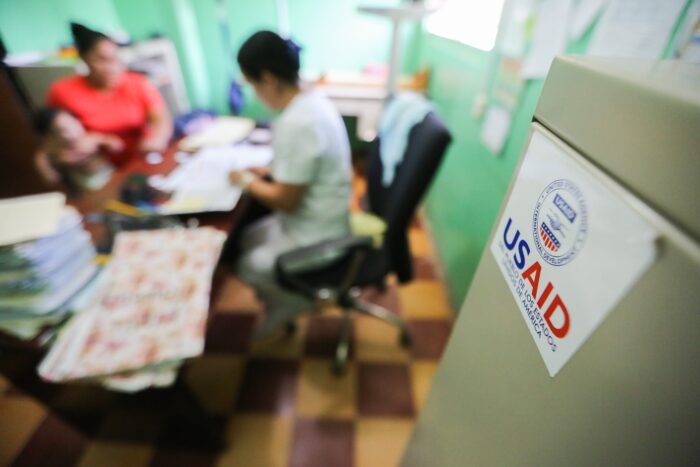
“It is very common for most young people to quit school and work. I wanted to better myself, to study… I like computer science. That is why I told myself ‘I am going to make an effort every day because I want to graduate,’ and I succeeded.” Belkis said proudly.
Through these internships, young trainees improve skills and acquire new ones that will make them more competitive in the Honduran job market. Interns perform substantive tasks within HLG´s six regional offices while receiving a stipend. Since most interns had no previous work experience, they engage in a two-week coaching and soft skills training.
After in-depth interviews, 30 young people were selected to be a part of HLG’s internship program, from a pool of 93 applicants. Interns were selected based on their abilities while also taking into consideration vulnerabilities such as belonging to an excluded or marginalized group. For the open call and recruitment process, the Activity received invaluable support from the Network of Community Technical Institutes (Red ITC) of public schools in 28 municipalities in western Honduras. The Network promotes an educational model that links students completing technical education programs with local economic development. The first group of interns consists of 24 women and six men from rural and remote communities, including 23 interns from the indigenous Lenca population, four single mothers, a young father, and a three-times returned migrant.
I TOLD MYSELF “I AM GOING TO GRADUATE.” I SUCCEEDED
From remote Candelaria, Lempira, 19-year-old Belkis Acosta is the only member of her family to have earned a high school degree. Despite lacking internet access and having only two working computers available at the José María Medina Technical Institute, Belkis was able to complete her secondary-level education in computer science. Belkis’ mother is a homemaker, and her father is a crop farmer. Her brother tried unsuccessfully to graduate from the same Institute. Now he helps their father out in the field.
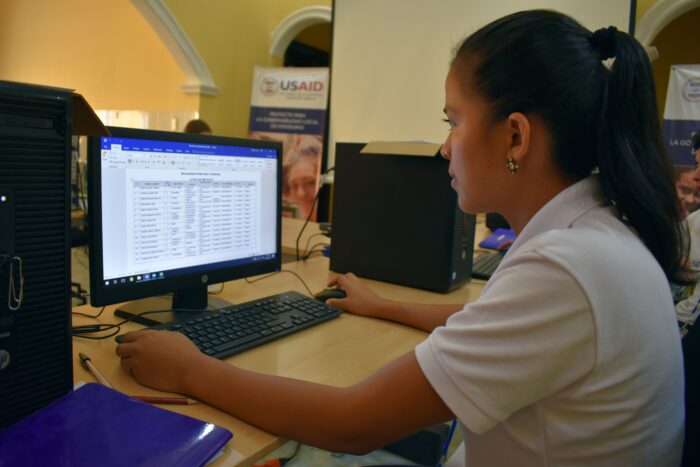
Interns work side by side with HLG’s senior local professionals and technicians to support program implementation. Each trainee follows a curriculum of minimum competencies based on individualized learning paths and receives mentoring from senior professionals with whom they work.
Belkis has been working with the Monitoring & Evaluation team in Ocotepeque, executing data-entry tasks and compiling information on permanent public employees to support municipalities in adhering to the Administrative Municipal Career Law and helping safeguard their paths in public service. “I was trained by an intern named Julio who is working on the Monitoring & Evaluation team in Copán. This was nice because he was trained by his mentor and the knowledge he acquired was transferred over to me,” noted Belkis on the knowledge transfer processes empowering the young participants in the program.
Julio Marquez, the intern who trained Belkis, is a 20-year-old who feels that participating in the program will help him reassess his goals and provide him with a fresh lease on life.
“I hope to be a more accomplished person, with more values, more focused on what I want, with a clearer vision of what I intend to do with my life,” said Julio.
Although the path to employment may be challenging, USAID believes that by engaging excluded youth in a professional context and equipping them with new skills through on-the-job training and mentorship, participants will have an upper hand in the country’s tight and competitive job market. Furthermore, youth will be able to develop networks, self-confidence, and grow personally and professionally, thus setting them and Honduras on a path to a better tomorrow.
The Internships for Inclusion initiative seeks to train 150 youth throughout HLG’s implementation until 2021.
By Alejandra Amaya, Communications Specialist for HLG at DAI (Development Alternatives International)
Date Published: Feb 2018


